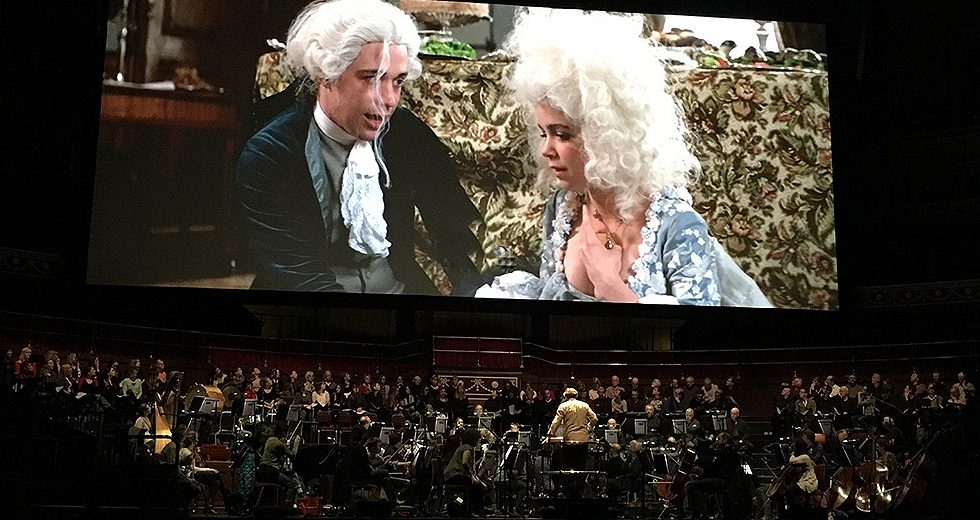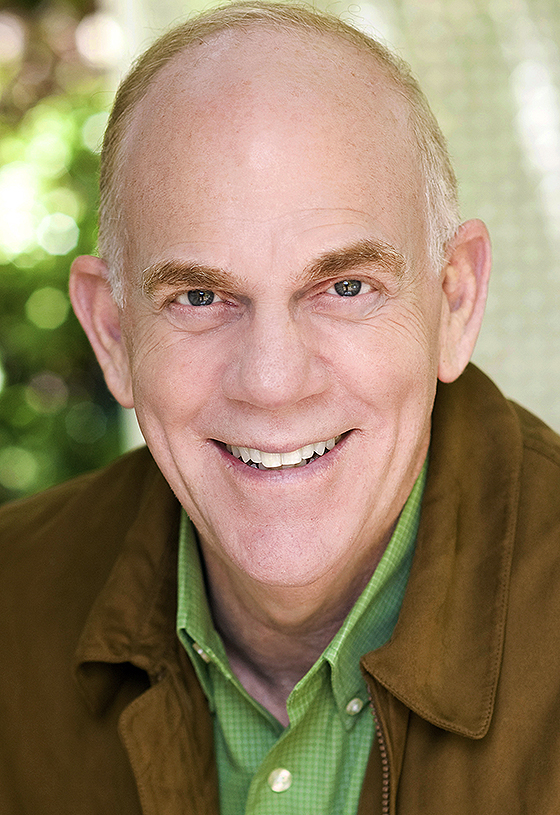
In 1984, an opulent 18th-century period drama became something of an unexpected hit: “Amadeus.” Based on a play by Peter Shaffer, who adapted his work for the screen, it told the story of one of the world’s most famous composers, Wolfgang Amadeus Mozart. But for the sake of good drama, it was not afraid to play loose with the facts and perpetuate such myths as rival composer Antonio Salieri (F. Murray Abraham) plotting his nemesis’ death and Mozart being buried in an unmarked pauper’s grave. While some viewers saw Tom Hulce’s exuberant portrayal of Mozart as a kind of clownish stereotype, others believed it brought out the child-like side of this creative genius and made him more approachably human.
Nominated for 11 Academy Awards, “Amadeus” won eight, including best picture. In his original review of the movie, critic Roger Ebert wrote: “When you consider that 98 percent of the American public never listens to classical music stations, it is astonishing that Mozart became for a time a best-seller. The movie’s success is partly explained by its strategy of portraying Mozart not as a paragon whose greatness is a burden to us all, but as a goofy proto-hippie with a high-pitched giggle, an overfondness for drink and a buxom wife who liked to chase him on all fours.”

Richard Kaufman will conduct performances of “Amadeus Live” on April 18-19.
This modern classic will be shown on April 18-19 on a big screen in Orchestra Hall with Richard Kaufman leading members of the Chicago Symphony Orchestra and Chorus simultaneously performing the film’s score onstage in a program titled “Amadeus Live.” The only facet of the original musical soundtrack that will remain are the vocal solos, which Kaufman will synchronize with the live orchestra. “It’s like standing in an opera pit, basically,” he said. “You accompany the solos. When you’re accompanying an opera live, you’re listening to the singers, and if they go faster, you faster, and if they go slower, you go slower. Well, in this case, the good news is that they sing it the same every time.”
The April 18 screening is part of the CSO at the Movies series, which began in 2004-05 and has become one of the orchestra’s most popular programs. Kaufman, who has conducted many of these concerts, joined MGM in 1984 and supervised music for the studio’s television projects for 18 years. The films featured in this format, known as live to picture, have ranged from Fritz Lang’s sci-fi silent thriller “Metropolis” (1927) to Elia Kazan’s “On the Waterfront” (1954) to Robert Zemeckis’ “Back to the Future” (1985). “A lot of people today don’t see these films on the big screen, not only the classic films but even more contemporary ones,” Kaufman said. “To see them on the big screen, with the orchestra, is a whole different experience.”
Kaufman regards “Amadeus” the “poster child” for this still-new concert genre because of the key role that music plays in the film and the singular creative force behind it. “Mozart in the concert hall has always been there for hundreds of years,” he said. “And now, combining the two great art forms, it just makes sense. I’ve always wondered what Mozart would have done if he had been a film composer, and when you look at ‘Amadeus’ and listen to ‘Amadeus’ the movie — for example, [the excerpt from] Don Giovanni after his father dies — it’s so dramatic, and it speaks to the plot of what’s going on in the movie, whether it’s true or not.”
Kaufman points as well to the end of the movie when a carriage is carrying the body of Mozart to his anonymous mass grave, and the composer’s Requiem, which he left unfinished at his death, is playing. “The music of the Requiem is the ultimate accompaniment,” he said. “I think every film composer would look at that and say, ‘That’s what I would have written if I had the skill.’ So I think the music of Mozart is incredibly filmmatic, even it wasn’t meant originally to be used as under-score.”
Famed conductor Neville Marriner supervised the music for “Amadeus,” agreeing to do so on one condition, that there absolutely be no changes to Mozart’s music. “So nothing in the music has been revamped or touched up — a director saying, ‘Let’s add some trumpets here. I sure would like some more excitement,’” Kaufman said. He praised the choices of music and director Milos Forman’s skillful job of coordinating it with the action. “There are a lot of scenes that are just dialogue,” Kaufman said, “and because it’s just dialogue, the music stands out more when it finally does play.”
Though “Amadeus” is now 33 years old, Kaufman believes it has withstood the test of time largely because of its compelling story and first-rate acting. It also helps, he said, that it is a period piece, which means that it easily transcends the era in which it was made. “I think everything about it works,” he said. “The costuming is gorgeous. Jeffrey Jones as the emperor — he is probably my favorite character in the whole film. All of the supporting cast, the way it’s shot, the classiness of it.”
He wonders how many of today’s moviegoers have ever seen this movie, let alone in a theater. “To see this on the big screen, as we’ll show it, is magnificent,” he said. “It’s just gorgeous. You could watch it without any sound, and it’s beautiful.”
Kyle MacMillan, former classical music critic of the Denver Post, is a Chicago-based arts journalist.